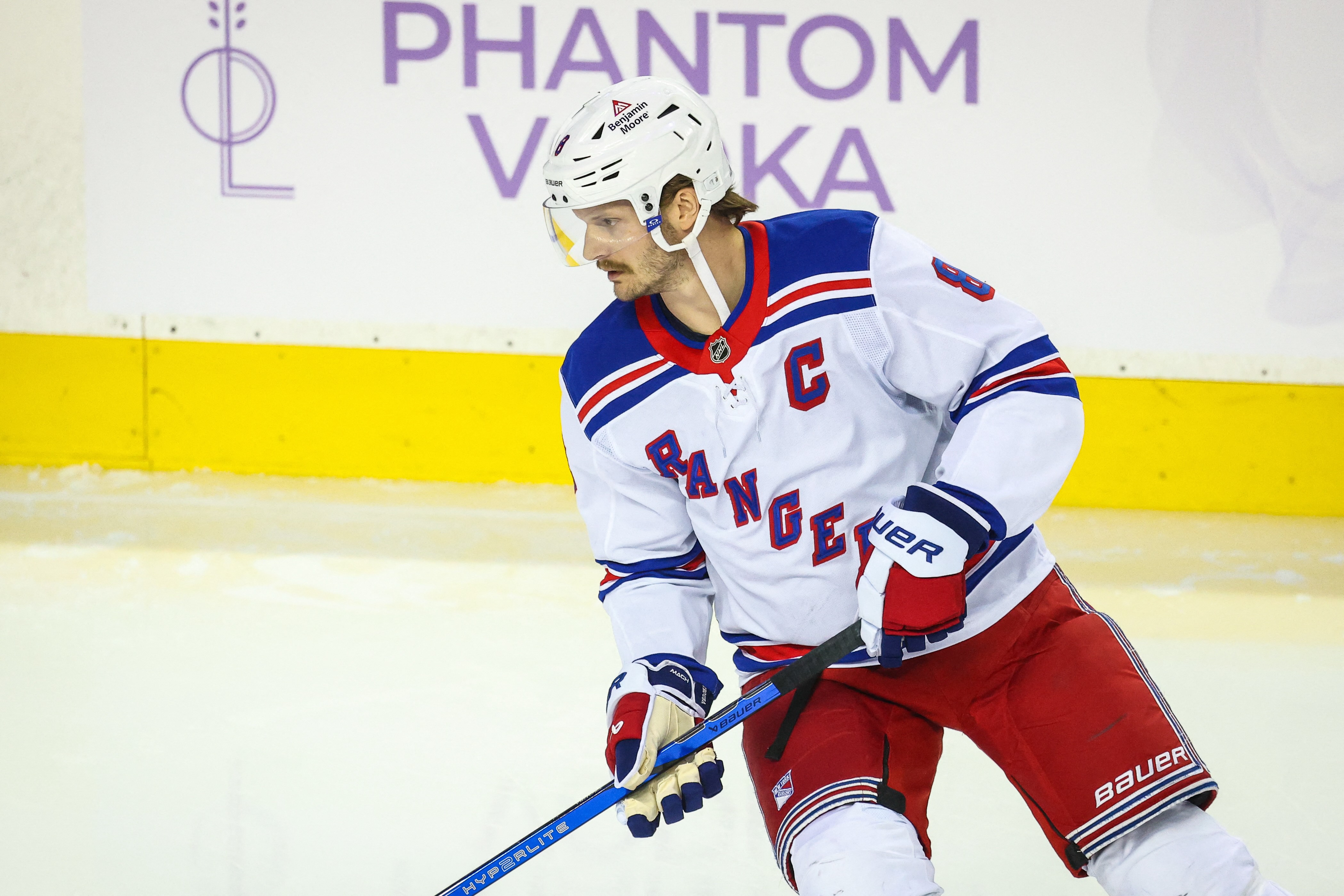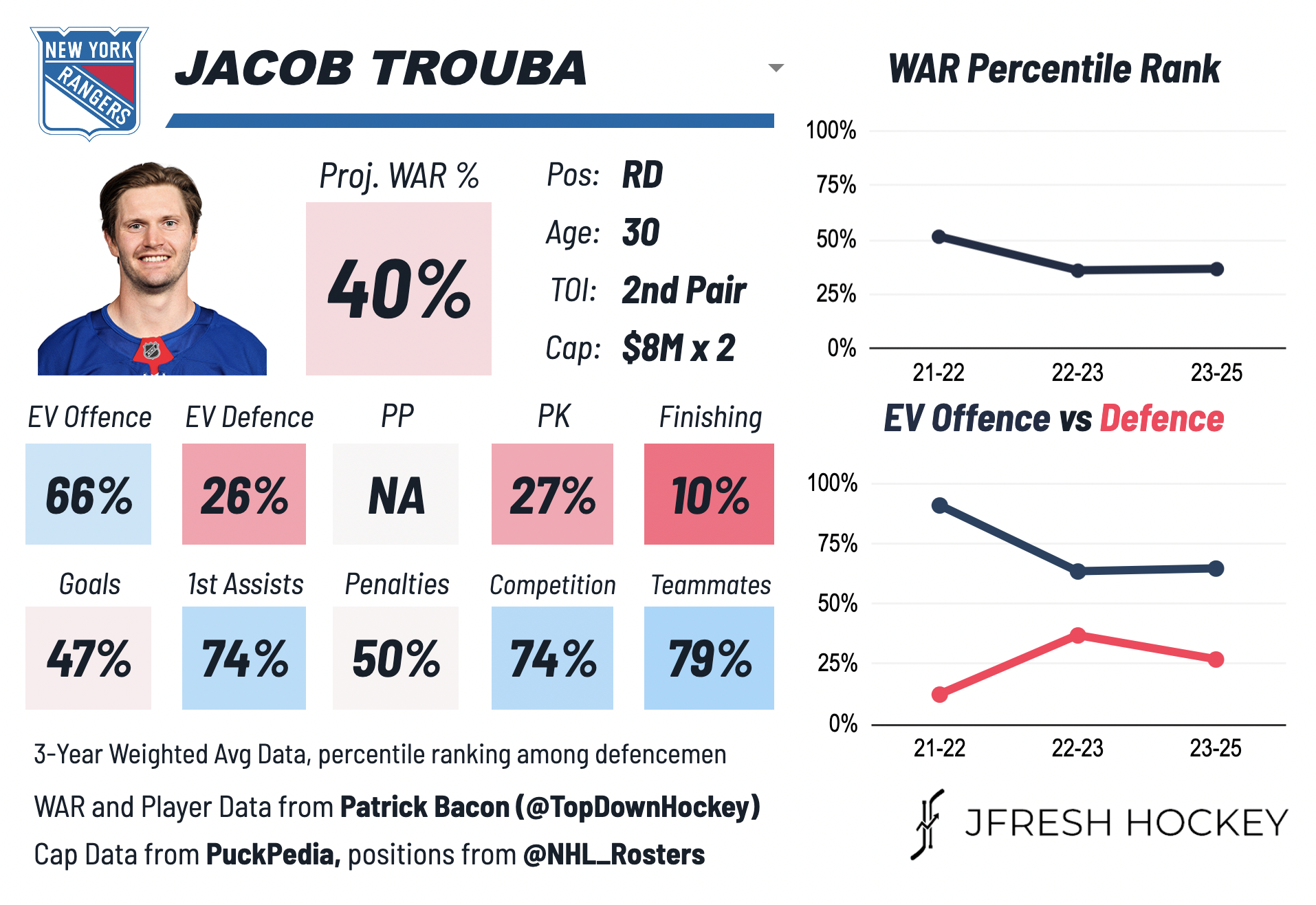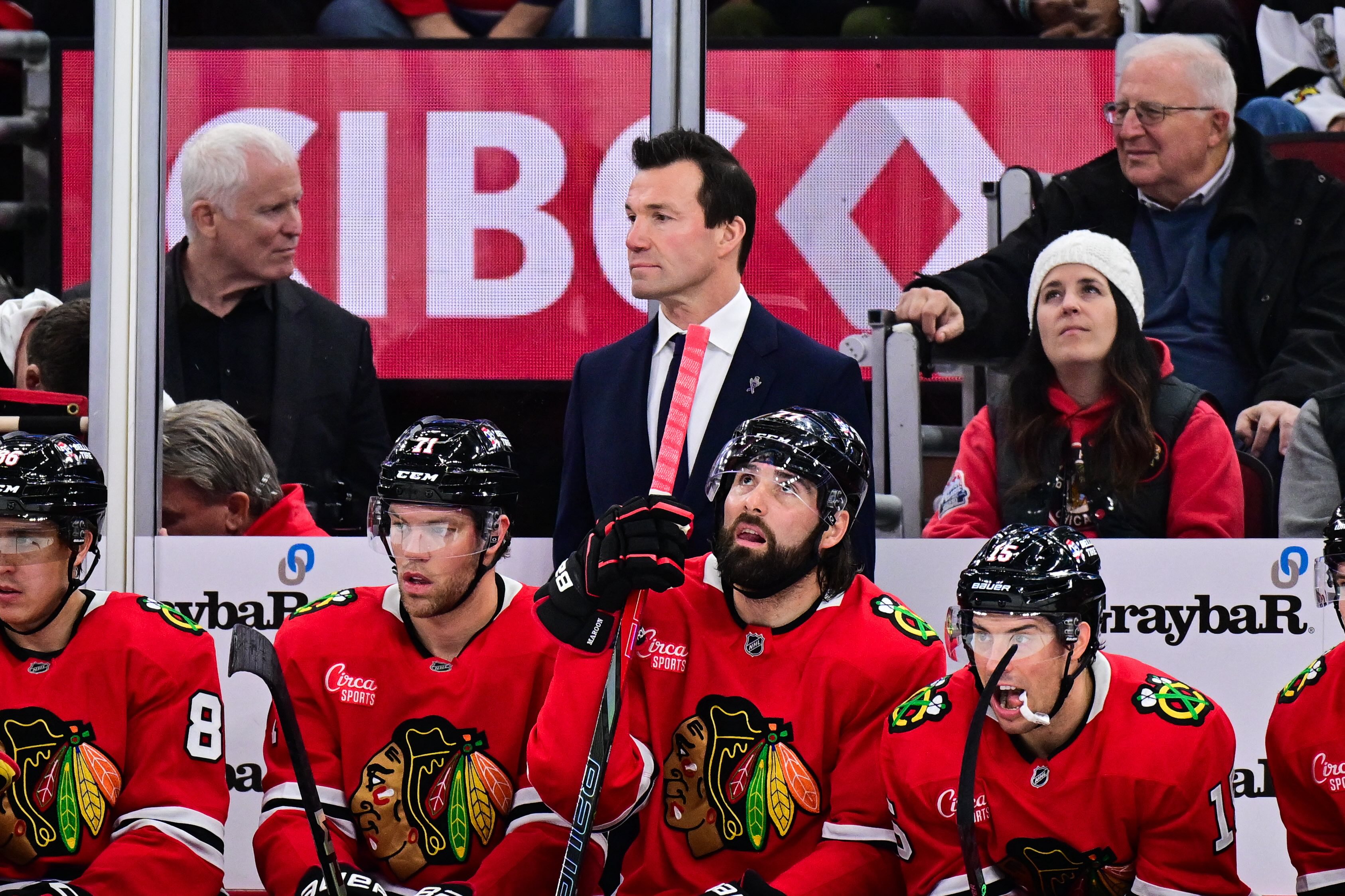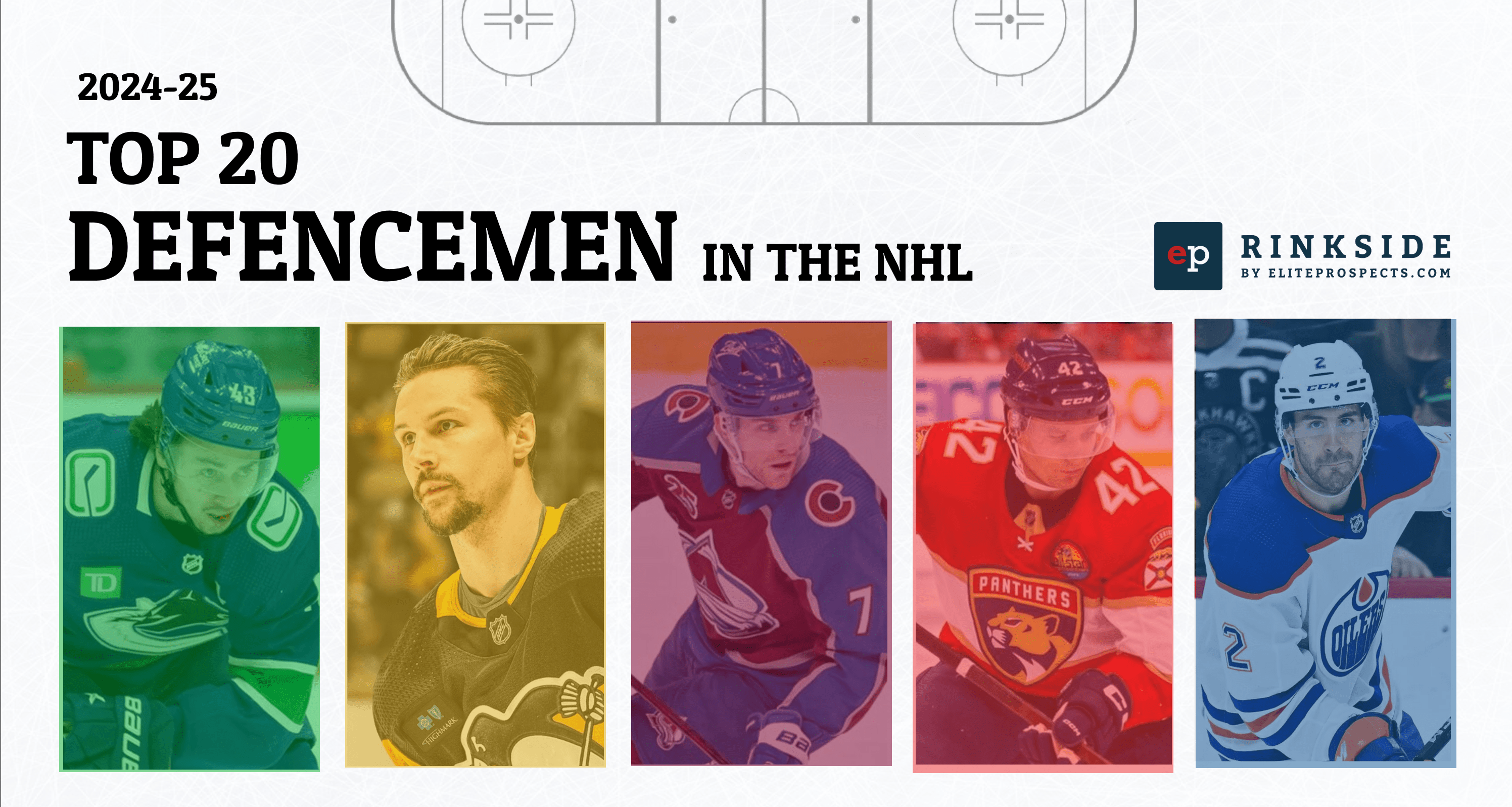Jacob Trouba is now an Anaheim Duck, What can he bring to them?

It's been a tumultuous few months for veteran defenceman Jacob Trouba.
In late May, his Rangers held a 2-1 lead in the Conference Final against the Florida Panthers He had already been awarded the Mark Messier Leadership Award, in recognition not only of his poise and presence on the ice but his service off the ice with local charities like the Garden of Dreams Foundation and his own Trouba Creative Expressions Art Program. Then the team dropped game four in overtime, lost two more tight one-goal games, and everything began to unravel for Trouba in New York. Rumours spread quickly in the offseason that the Rangers were desperate to unload his $8 million cap hit but stymied by his no-trade clause, a development that led to some ugly backlash directed towards his wife, whose career and preference for staying in the city helped bring Trouba to the team in the first place.
This stasis forced the team to enter the season with a captain who knew he wasn't wanted and a lineup deprived of the upgrades up front it knew it needed. However, Trouba's 2024-25 season started out encouragingly, as it did for pretty much everyone on the Rangers. In the first eight games, Ryan Lindgren's absence from the lineup due to injury resulted in a set of defensive pairings that was extremely effective, including Trouba's with the enthusiastic, speedy, and physical young blueliner Braden Schneider. That duo had a 69% goal share and a 62% expected goal share, rolling as a great second pair behind K'Andre Miller and Adam Fox.
Once Lindgren rejoined the top four, things rapidly went south. Trouba was reunited with Miller, the partner with whom he has played the most by far in the past three seasons with generally poor results (especially in the postseason), and the duo got plastered – outscored 10-0 and outshot 65-25. His name quickly re-emerged in trade rumours as the team spiralled, and a quick stint with Zac Jones has failed to turn the tide.
Watch his Dec. 2 game against the Devils, potentially his last in New York, and you see a player going through the motions:
On Friday afternoon Trouba was traded to the Anaheim Ducks for a fourth-round pick and Urho Vaakanainen.
We may as well start with the obligatory player card.

Trouba profiles as a below-average defenceman, which is what he's been for a while. Since the emergence of Fox as an elite blueliner in the 2020-21 season he's almost always played high-end top four minutes, not typically against the opponents' top competition. Despite his reputation, his impact on the ice is more positive on the offensive side of the puck than the defensive side (for reasons we'll get into), although he does kill penalties. For a bit more detail on the process behind the results, we can turn to the player profile cards I created for EP Rinkside's Player Ranking series this summer, expanding the range of statistics with metrics from AllThreeZones and InStatHockey:

Let's start with the hitting. While Trouba doesn't rank among the league's most prolific hitters, in terms of open-ice body-checks he stands mostly alone. He's one of the few big-minute blueliners in the league who's willing to risk the borderline legality of explosive hits against players with their heads down. In the past, these crushing hits were typically undertaken in situations in which Trouba could be sure that he had support behind him just in case something went wrong; increasingly, however, he's embraced his reputation a little too enthusiastically and has shown a willingness to risk not only suspension but exposing his goalie to odd-man situations. Let's return to that game four overtime referenced above – that Panthers goal happens in large part because Trouba inexplicably decides to chase a hit to the boards:
Some aggressive defencemen make it work by virtue of mobility that allows them to win races and jump back into the play, but Trouba lacks the kind of speed and agility to play that type of game effectively at this point. More evidence of this issue can be found in his zone entry defence numbers, tracked by Corey Sznajder. Trouba has consistently been vulnerable to rushing attackers, conceding a lot of scoring chances when targeted in transition, but in the past it was at least a high-reward process that would lead to a solid clip of entry denials. In 2023-24, even that benefit vanished and Trouba might as well have been rolling out the red carpet for on-coming forwards:

Within the defensive zone, he's a bit more effective, working hard to recover pucks along the boards and engage in front of the net. He's not one of the more prolific puck battlers in the game, and his defensive stick isn't anything special, but he has a solid first touch and absorbs contact well, clearing the crease quite effectively once he's there. To his credit, Trouba can still send a decent first pass, although he does it less frequently than he once did. Increasingly, however, he resorts to flinging it up the boards, which is resulting in far more turnovers than before. Last season, his rate of exits with possession of the puck plummeted, while his rate of failed exit attempts skyrocketed. In other words, Trouba's difficulty defending the counter-attack is compounded by his own struggles to move the puck up ice cleanly.
As I alluded to earlier, much of Trouba's value really comes on offence, where he's an above-average driver and creator of scoring opportunities and is quite underrated. Despite his lack of straight-line speed, he's more than willing to jump up in the rush and push deeper into the offensive zone, generating a solid number of scoring chances and even shots off high-danger passes. He can also find linemates in dangerous areas of the zone with playmaking skill and has a knack for putting pucks in the right places for deflections—just ask Chris Kreider. His own shooting efficiency is poor, and nobody is likely to put him on the top power play, but I think an acquiring team might be pleasantly surprised by what he still has in the tank when the puck is in his opponent's end.
On paper, a physical minute-muncher with some offensive upside would seem like the ideal fit to play on the Rangers' second pairing behind Fox, but at this point, it just isn't working. The team made it deep in the playoffs last season more in spite of Trouba's pair than because of it. His cap hit is at least twice what it should be, and the interpersonal relationship between player and organization is beyond repair. This doesn't mean he has nothing to offer an acquiring team, especially if that team has cap space and no immediate plans for Cup contention. With the right partner—one capable of playing a stable, puck-moving game, moving his feet, and reducing some of the workload—it's not impossible to imagine Trouba playing reasonable top-four hockey in the next few seasons. That leadership might pay off as well. Whether he likes it or not, Trouba is bound for a new challenge in Anaheim, and it will be interesting to see what he makes of it.


